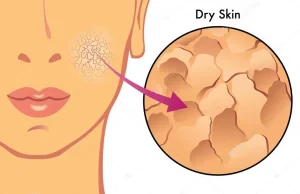Overview
Diagnosis
To diagnose dry skin, your doctor will typically perform a physical examination and review your medical history. You may be asked about when the dryness began, any factors that make it better or worse, your bathing routine, and how you currently care for your skin.
Sometimes, your doctor may recommend additional tests to check whether your dry skin is linked to an underlying medical condition such as hypothyroidism (an underactive thyroid). In many cases, dry skin can also be a symptom of other skin conditions like dermatitis or psoriasis.
Treatment
Most cases of dry skin can be managed effectively with simple lifestyle changes and proper skin care. Regular moisturizing and avoiding excessive exposure to hot water are key steps in restoring skin hydration.
Lifestyle measures and skincare
-
Use gentle, fragrance-free moisturizers daily, especially after bathing.
-
Limit long, hot showers or baths, as heat can strip the skin of natural oils.
-
Use mild soaps or cleansers formulated for dry or sensitive skin.
-
Protect your skin from cold, dry air by using a humidifier at home.
Medical treatments
If lifestyle measures are not enough, your doctor may recommend medical treatments based on the severity of your dryness or any underlying condition. These may include:
-
Prescription creams or ointments to treat specific skin diseases or inflammation.
-
Hydrocortisone lotions to relieve itching caused by irritation or inflammation.
-
Wet dressings to protect cracked skin and prevent infection if the skin has broken open.
Advertisement

